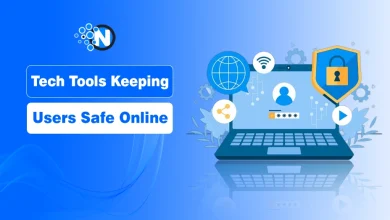How Web 3.0 Browsers Are Shaping the Future of Internet Governance
Web 3.0 browsers incorporate advanced technologies such as artificial intelligence, machine learning, cognitive computing, and blockchain. These technologies enable decentralized and user-centric interactions. Unlike traditional browsers, these browsers shift away from centralized providers like Google and Apple, allowing users to independently govern and administer web elements.
Decentralized finance/DeFi, a key aspect of Web 3.0, facilitates economic transactions on the blockchain without intermediaries like banks or governments. The shift increases global data collection and accessibility, enabling direct interactions with computers without third-party services.
Web 3.0 applications are constructed on decentralized systems governed by anonymous web nodes, with smart contracts managing program logic. This open-source platform allows transparent planning and implementation of blockchain projects, giving users control over their data and code.
AI in Web 3.0 supports the processing of complex data for problem-solving and knowledge creation. It can analyze massive datasets to extract relevant information, offer personalized services, and anticipate user needs. Examples include Apple’s Siri, which leverages voice recognition technology, and Wolfram Alpha, an AI platform computing complex answers. Steemit, using the Steem Blockchain, powers a decentralized reward system for content providers.

Decentralized Identity and User Control
Web 3.0 browsers, such as Brave and Opera, support decentralized identity systems, enabling users to manage their digital identities independently. Decentralized identifiers and self-sovereign identities are key components of this shift. This development reduces reliance on centralized authorities and minimizes the risk of data breaches. Decentralized identity systems enable secure and transparent online interactions, promoting trust and accountability.
Research shows Web 3.0 will optimize web data ownership through distributed technology. This approach is expected to make the internet more personalized, responsive, and efficient, with AI and blockchain technologies playing pivotal roles. Additionally, Gartner predicts that 25% of businesses will operate decentralized apps by 2024, although these might be integrated within centralized applications. The full Web 3.0 transition is anticipated to take at least a decade due to the emerging nature of its core technologies.
Web 3.0 browsers also advocate for a private web 3.0 browser to further enhance privacy and security. This approach aligns with decentralized Internet governance principles, challenging traditional power structures dominated by major tech companies and governments.
Adoption and Market Trends
Based on the results of Adoption statistics, there are considerable increases in Web 3.0. For example, ConsenSys research shows the number of daily active Ethereum addresses which are associated with Web 3. The number of applications was zero in mid-2020, and it crossed the 200-million mark by mid-2024. specifically, DeFi applications available through Web 3. DeFi, which started with 0 browsers, has emerged as a major sector, with the total value locked inside various DeFi protocols crossing $100 billion in the 2024 calendar year. This trend reveals the growing awareness in decentralized platforms and applications, which lie at the core of Web 3.
Experts demonstrate how Web 3.0 browsers have revolutionized internet governance. By allowing users to participate in the governance of online platforms, these browsers support a more democratic and open internet. This is best demonstrated by the token-based incentive system of Brave Browser, which rewards user attention and participation while redistributing value throughout the digital ecosystem. This paradigm contradicts the conventional Web 2.0 advertising-driven income structures, which frequently put profit ahead of user privacy and enjoyment.
Challenges and Future Prospects
The transition to Web 3.0 encounters multiple challenges. Regulatory hurdles arise as existing legal frameworks may not sufficiently address blockchain-based systems’ ramifications. Web 3.0 browsers’ user experience remains in development, with some users finding the transition from traditional browsers challenging. Scalability is another concern, as blockchain networks currently face limitations in processing large transaction volumes quickly and efficiently.
Despite these obstacles, Web 3.0 browsers provide a great deal of room for innovation. They can strengthen digital sovereignty by decentralizing authority, particularly in areas with strict internet regulations. Web 3.0 browsers guarantee that all data is handled equally and without bias by adhering to net neutrality standards. These technologies, which use blockchain, AI, and ML to facilitate real-time human interactions, promise to make the internet safer, quicker, and more personalized. Web 3.0 browsers provide users control over and ownership over their data, making up for the time they spend on the internet.
Financial Empowerment
Web 3.0 browsers have the potential to enable new decentralized economic structures. They can facilitate the usage of decentralized finance (DeFi) applications and cryptocurrencies, for example, allowing users to transact financial business without the need for middlemen. Communities and people could benefit from this, particularly in areas where access to traditional banking services is restricted.
Final Thoughts
The transition to a user-centric, decentralized, and intelligent web is being fueled by Web 3.0 browsers. These browsers will continue to change internet governance and promote a more just and private-focused digital economy as their use increases and technology develops. The internet’s functionality, security, and user engagement will all be improved by the continuous development and integration of decentralized applications and identification systems, which will ultimately change online governance and interactions.




